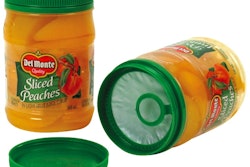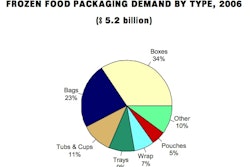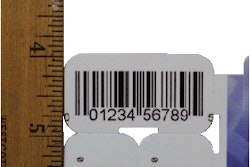
JBS Swift & Co. has adopted the PakSense (www.paksense.com) TXi™ Label to monitor time and temperature of product during distribution. PakSense labels have been used since mid-2007 on truckloads of fresh beef and pork from JBS Swift's North American processing plants to customer locations throughout the U.S.
PakSense labels are placed on fresh beef and pork loads, which are shipped to customer locations. The labels are used on the outside of a case, one label per truck shipment. The shipment duration is measured in days, according to JBS Swift. When the truck is received, JBS Swift customers examine visual indicators on PakSense Labels to verify that acceptable temperature ranges were maintained during shipping. The labels blink green for good, and blink yellow if there's a reading outside the range that needs checking. The smart labels are returned by JBS Swift's customers using a special 4x6-in. prepaid envelope to JBS Swift’s Greeley, CO, office as part of its temperature traceability program.
‘Vast improvement’ over paper charts
“The PakSense label replaces a paper strip chart temperature monitoring device and is a technology upgrade,” explains Warren Mirtsching, manager of Food Safety & Quality at JBS Swift. “In the past, it was difficult to keep track of these strip charts and tie them back to a particular shipment. The PakSense label is a vast improvement over the old system and is a great tool to promote better food quality throughout the industry.”
Measuring 1 1/4 x 1 3/4 in., the smart label’s small, sugar-packet-like size permits it to be returned via the postal system. The label’s nonvolatile memory means that data can be downloaded at any point in the future. PakSense labels are a definitive resource if questions regarding temperature during distribution arise. JBS Swift has found the labels' accuracy, as well as their repeatability, to be "dead on, " Mirtsching says.
Each label remains sealed in use inside a clear, food-grade 2.25-mil multilayer PET film.
A label is activated by breaking off a small section of the lower right corner. Because of the label's size, PakSense says the one-way labels can monitor the surface temperature of the product rather than ambient temperature to provide better accuracy. The data can be uploaded into an Microsoft Excel spreadsheet using a $179 PakSense reader. Mirtsching says each of its more than half-dozen plant locations has two or three readers.
"Some of our customers have started to conduct their own readings, which is fine with us," Mirtsching adds.
High rate of return
He notes that JBS Swift has a label return rate in the upper 90% range, compared to paper recording return rates around 25%. The company can download the data and/or archive the label for future data retrieval.
The PakSense labels give JBS Swift much more information than the paper charts, and closer to real-time intelligence, according to Mirtsching. From a strategic sense, he says, the smart labels increase customer satisfaction as measured by product safety and product performance, as well as increasing shelf life and reducing the hazards and hassles associated with distribution transportation.























